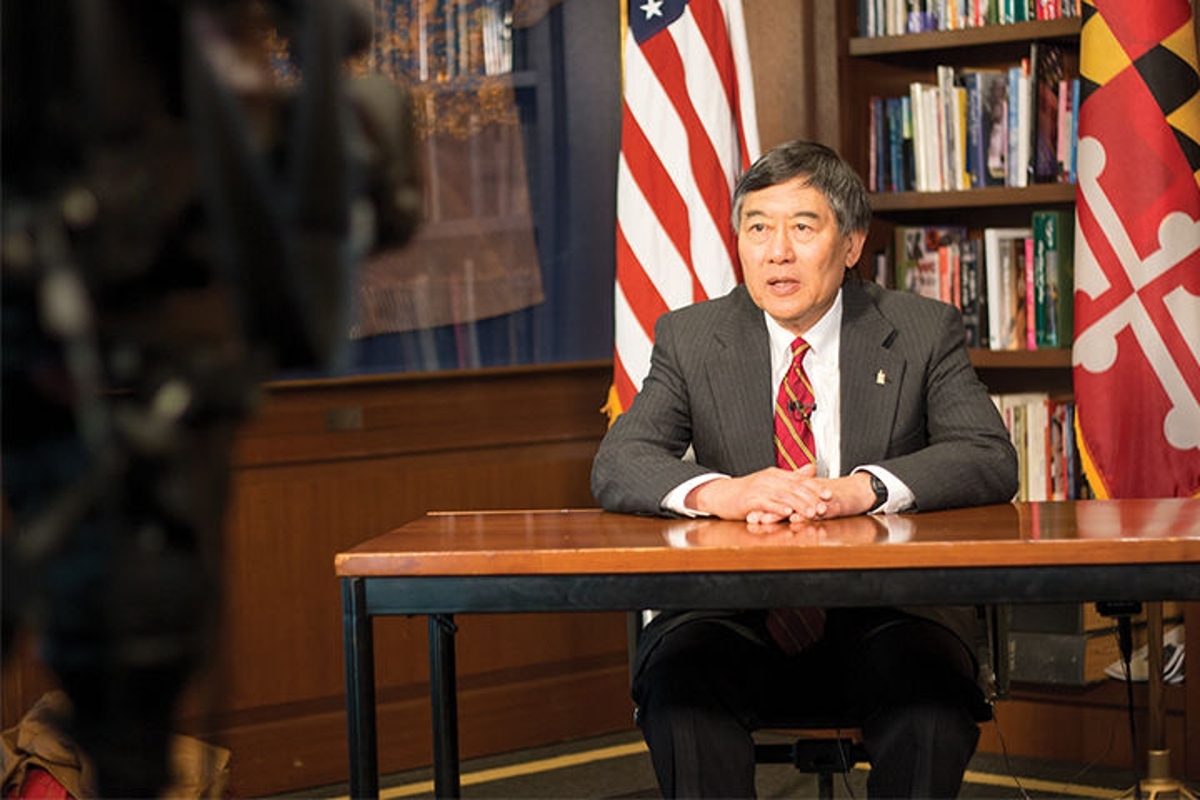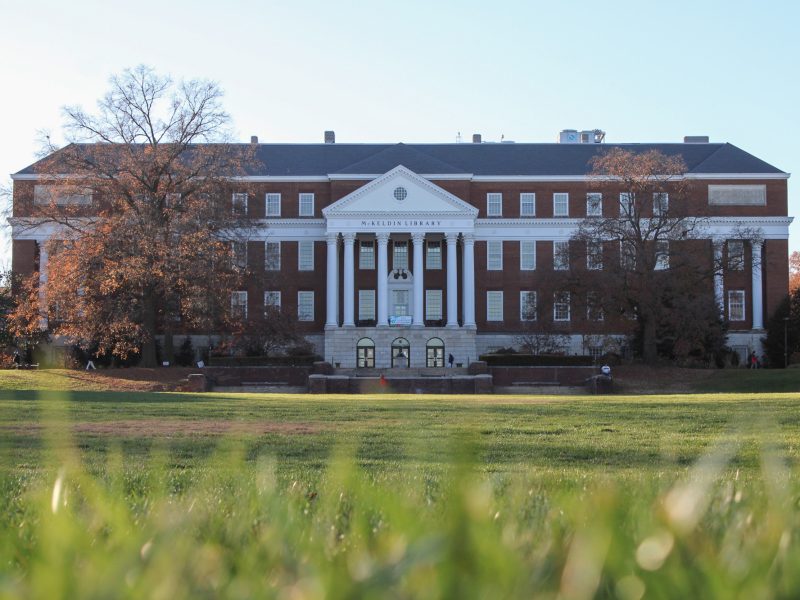University of Maryland President Wallace Loh issued a statement Sunday “expressing concern” over President Trump’s executive order on immigration and showing support for those affected.
“We are currently assessing how this executive order may affect the students and scholars at our campus who come from those countries,” Loh wrote. “In the meantime, I join my colleagues from across the U.S. in an emphatic message of support for them and their families.”
Trump’s executive order, signed Friday, bans citizens from seven predominantly Muslim countries from entering the U.S. for 90 days. It also suspends refugees from being admitted for 120 days, while Syrian refugees are barred indefinitely.
Loh said continuing to welcome these populations in the U.S. is essential to “retain[ing] America’s global leadership in higher education.”
At this university, 4.6 percent of undergraduate students and 33.6 percent of graduate students are foreign as of October 2016, according to the Office of Institutional Research, Planning and Assessment. Loh himself is a Chinese immigrant who grew up in Peru.
Among this university’s foreign student population, two undergraduate students and 94 graduate students are from Iran, and at least one student is from Sudan, according to IRPA.
University of Michigan President Mark S. Schlissel released a statement over the weekend as well promising not to provide students’ information on immigration status unless required by law.
Read Loh’s full remarks below:
“The University of Maryland joins other member institutions of the Association of American Universities and the Association of Public and Land-grant Universities in expressing concern over the temporary banning from entry into the U.S. of visa and green card holders of seven mostly Muslim countries.
“The potential for negatively impacting the educational and research missions of our campus is significant. We are currently assessing how this executive order may affect the students and scholars at our campus who come from these countries.
“In the meantime, I join my colleagues from across the U.S. in an emphatic message of support for them and their families. It is in America’s national interest that we continue to welcome talented individuals of all nations to study, teach, and do research here and retain America’s global leadership in higher education.”



